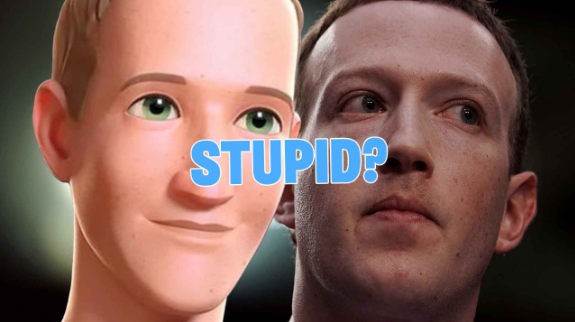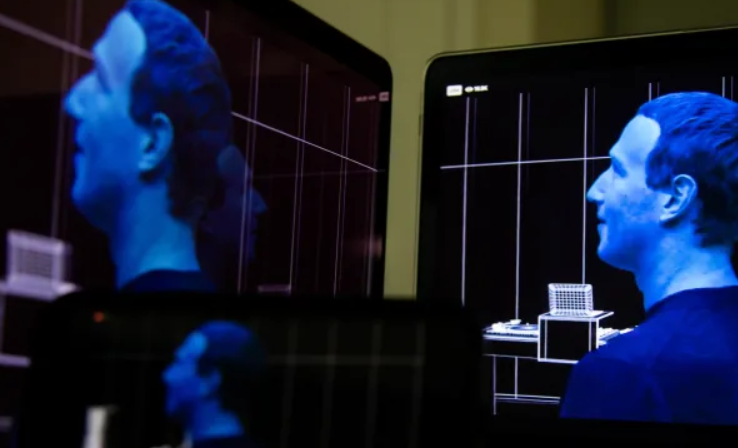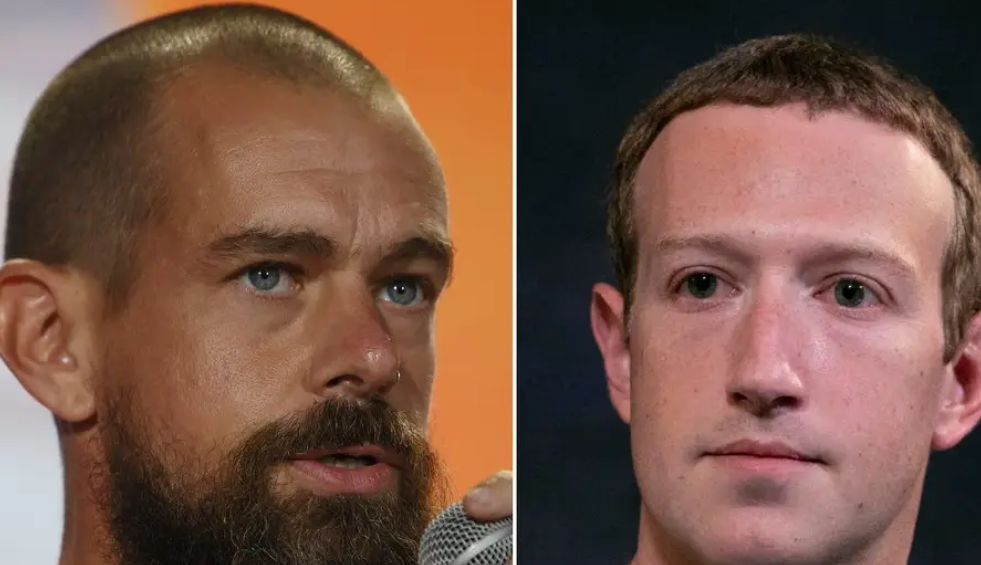Playboy is on a mission to spread its famous bunny logo throughout the digital universe.
The company has released thousands of Playboy NFTs featuring rabbit avatars, launched a digital social platform called Centerfold, and has plans to build a new Playboy Mansion in the metaverse.
These plans are unfolding as an A&E documentary focuses on the company’s unflattering past. “Secrets of Playboy” is a 10-part series that makes headlines by featuring former employees, playmates and ex-girlfriends of company founder Hugh Hefner alleging that Playboy had a dark side.
Even before the series debuted in late January, the company’s management posted an open letter on its website stating that “Today’s Playboy is not Hugh Hefner’s Playboy.”
The futurist moves come nearly five years after Hefner’s death and two years since the last legacy print magazine hit newsstands. Staging your digital reinvention for the next wave of Internet innovation, which technologists are calling Web3, is the next big challenge.
“The magazine was a product of the company. But it was actually that rabbit head that is worth billions of dollars and cannot be replicated,” Playboy CEO Ben Kohn told CNBC in a recent interview.
While the brand generates billions in consumer spending around the world, much of it through licensed products sold abroad, Kohn said the business model isn’t working and the company needs to make changes.
The CEO’s solutions depend heavily on that not-so-secret weapon: the world-famous bunny in a bowtie.
“When you think about what this brand stands for, from a marketing perspective, from an awareness perspective, we pretty much have 100% awareness worldwide,” he said.
Kohn compared Playboy brand awareness to Nike and Apple— companies with logos that are also instantly recognizable around the world.
The company is focused on trying to harness that “inherent value” in the digital world. For example, a Playboy SEC filing last year shows the company paid $12 million to buy a Bombardier Global Express BD-700 so Kohn could unleash that priceless bunny logo not only in the sky, but on the internet as well.
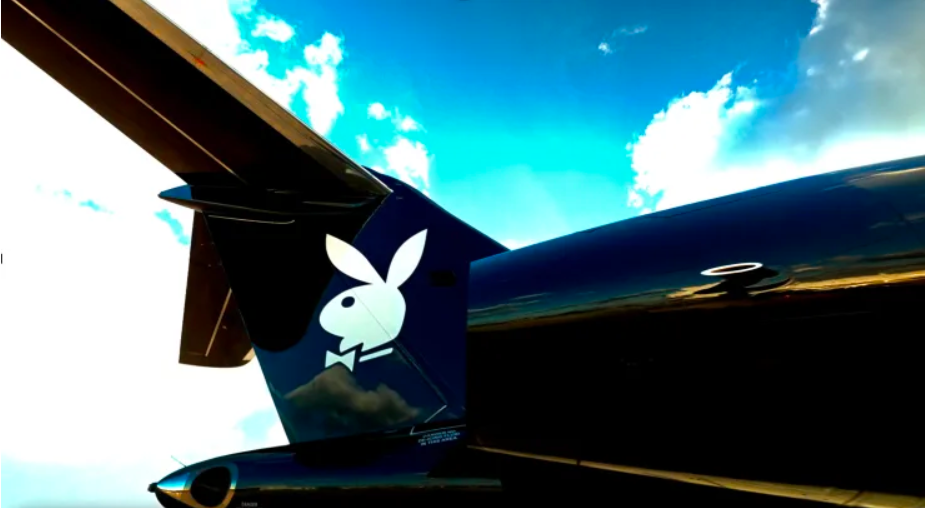
The plane is a homage to the black-painted DC-9, known as the Big Bunny, flown by Hugh Hefner in the 1970s. The Global Express, which started out white, received a complete makeover before re-emerging five months later with a Sleek all-black body emblazoned with bunny logos and the same tail number worn on its predecessor that carried Hefner, celebrities, and a Playboy entourage. bunnies from all over the world.
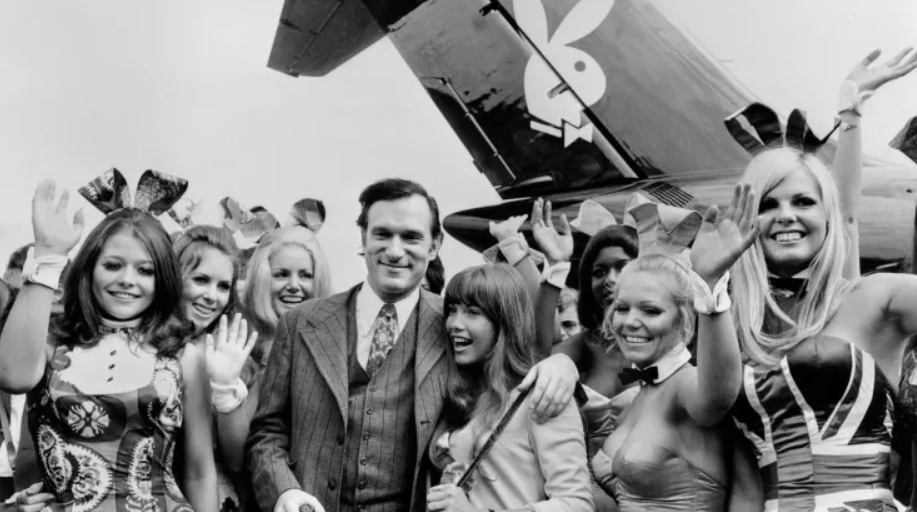
Unlike Hefner’s plane, there are no scantily clad Playboy bunnies or a waterbed on this trip. The luxury plane includes a pop-up bar and digital disco balls, but Kohn is looking beyond those dated features to the potential for the powerful tailwind Global Express could create for e-commerce, social influence and marketing. .
“This is a way of working with global influencers and celebrities, in a collaborative way,” he said.
On one of its first flights in December, the plane took Cardi B from New York to Art Basel in Miami. That takeoff coincided with the announcement of the famed rapper’s new role as creative director-in-residence for Playboy and the company’s launch of a new line of travel-themed clothing and accessories inspired by the relaunch of the Big Bunny jet.
Deals include a $950 cashmere blanket with the plane’s tail number, N95OPB, printed on it and a $350 leather safari jacket to match the distinctive leather-upholstered walls in the plane’s bathroom, all sold exclusively online. . For Kohn, the $12 million plane is a flying billboard/retail store, and when influencers are on board, it becomes a megaphone for the brand on social media.
On her flight to Miami, Cardi B created two Instagram posts that amassed nearly 9 million views. Playboy is counting on the influence of the rapper and her 123 million Instagram followers to help revive the brand and provide jet fuel for Centerfold, her new venture. The company describes Centerfold as a new digital platform that promotes “creative freedom, artistic expression, and sex positivity.”
Users pay fees to subscribe to a creator’s content, and the creator splits that revenue with Playboy, competing with OnlyFans, an online subscription platform known for featuring many creators who produce sexually explicit content.
In October, Kohn reunited the brand with actress and model Pamela Anderson, who has appeared on 13 Playboy covers since 1989. Her latest role: helping promote Playboy’s first batch of non-expendable tokens, or NFTs.
The company has released Rabbitars, 11,953 original digital artworks depicting cartoon-like bunny characters for sale on OpenSea, an NFT marketplace. These Rabbitar NFTs also unlock exclusive offers, giveaways, and a variety of metaverse experiences. In the spring, Playboy plans to release Rabbitar-themed merchandise. Additionally, archival photos of David Bowie from 1976, a Playboy bunny on water skis from 1970, and an April 1973 Playboy cover have all become NFTs.
“We have 10 million pieces of content in our archive that we may also remove as NFTs go along,” Kohn said.
The CEO also has plans to bring back the Playboy Mansion, but this time in digital form.

“I see [the mansion] coming back first in the metaverse, because I think we can reach a global audience through that. It will be part of our membership plan,” Kohn said. “And then I get to see a world in the future where we also have physical mansions.”
Playboy has thrown parties in Decentraland, one of the most popular virtual worlds, but has yet to choose a site for his metaverse mansion.
“As we move into 2022, we will start with Playboy membership and members will have a lot of benefits going forward and a lot of our membership will be based on blockchain,” Kohn said.
As Kohn looks to the future, the release of the 10-hour “Secrets of Playboy” last month forces the company to publicly acknowledge its past. However, the company’s leadership chose to try to get ahead of history. In an open letter before the series aired, he expressed his support for those who reached out to talk about their experiences in the world of Playboy.
“As a brand with sex positivity at its core, we believe that safety and responsibility are paramount, and anything less is inexcusable,” the letter read.
Kohn told CNBC that under her leadership, Playboy has come a long way and can now boast that 80% of its employees are women. “And I think that’s a great sign of where the company is going,” he said.
He also pointed to a dramatic shift in consumer demographics as a sign that Playboy is opening a new chapter in its story.
“If you look at the average age of our audience, 75% of them are under 34. Today, more than 50% of our sales are to women; that is a radically different company from where we were four years ago,” he said.





